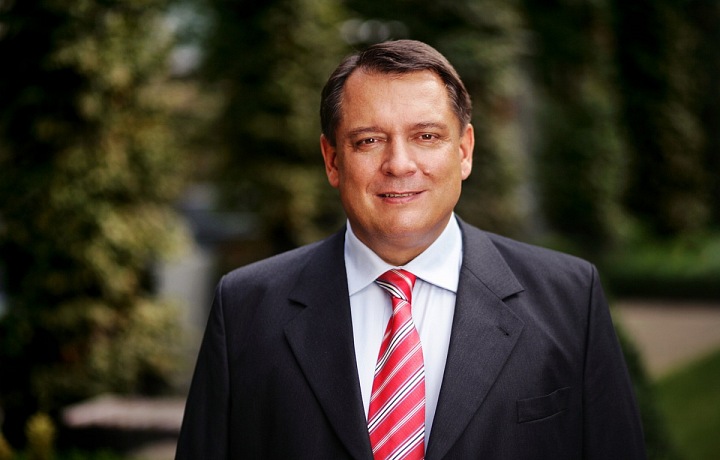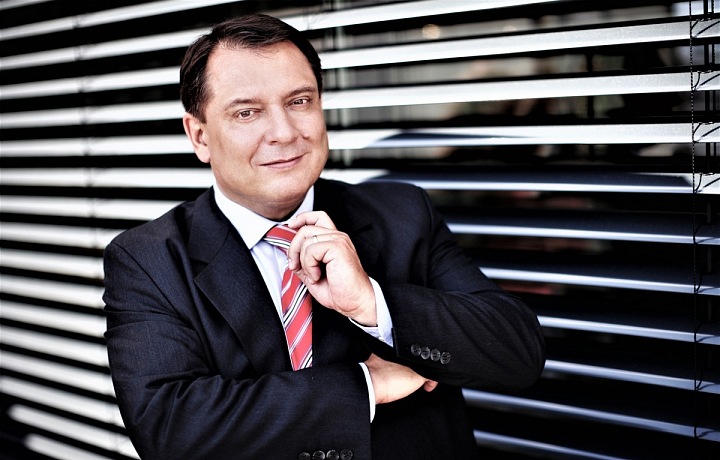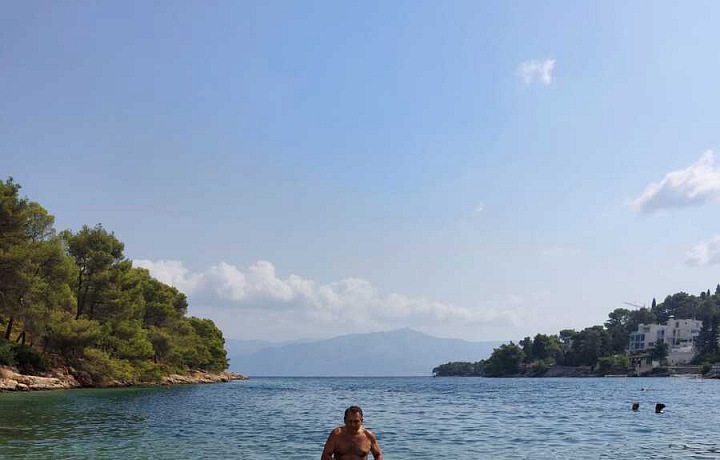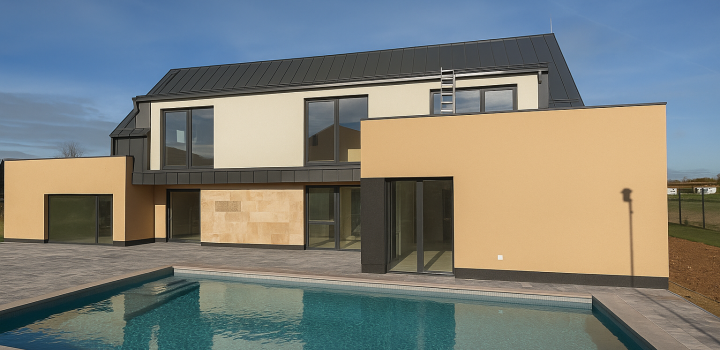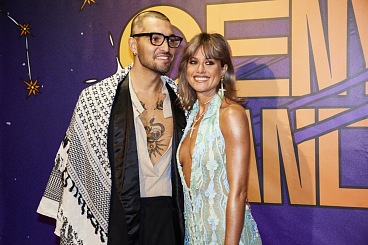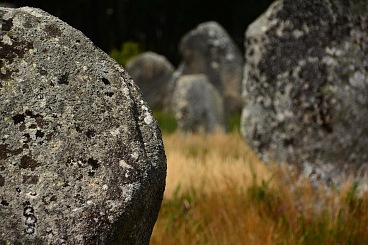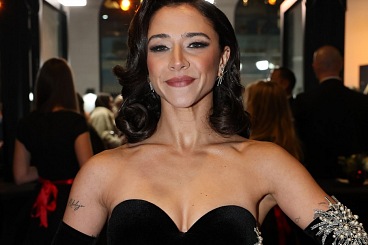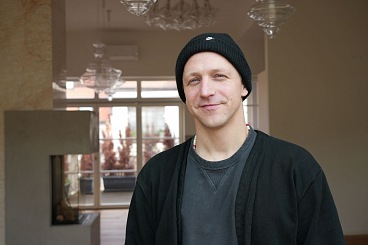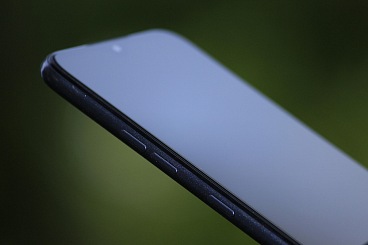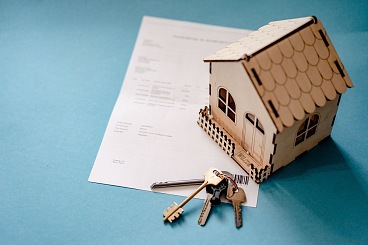Fast Confession - former Prime Minister and Chairman of the Czech Social Democratic Party Jiří Paroubek: I don't have an adrenaline hobby, politics was enough for me
Even though former Prime Minister Jiří Paroubek is already retired, he still follows the current events around him. He follows a healthy lifestyle associated with a healthy diet and regular exercise, not failing to study foreign languages as well. He is still involved in contemporary politics and likes to reminisce about his era in this field. In an interview with LP-Life.com, he said that he is by no means indifferent to the national debt of our republic, and he described Andrej Babiš's party as the leader in the upcoming elections, which keeps scoring "points", although he does not see its long-term goal.
What do you do now professionally, as you’re obviously not quite retired?
I would say I’m retired partially, and I am receiving a pension. But otherwise, I'm pursuing economic consulting and I'm also doing what I enjoy. One example is journalism; I write articles almost every day. This forces me to read not only the Czech media, but also the foreign press, especially British and Austrian. I also try to study French, so I read French newspapers Le Monde and Le Figaro as well. So I only do things that interest me.
Are you still interested in Chinese exercises and a healthy diet, including certain physiotherapy, which you have promoted publicly and through your videos?
I wouldn't know if I've promoted it explicitly. I'd say it's more about that it’s useful to me, and given the experience I've had, I'd recommend everyone to exercise. And it doesn’t really matter whether it's Chinese exercises or yoga. I start every day by revising the vocabulary of the three languages I study for three-quarters of an hour to an hour. These languages are French, which I've picked up recently (3 years ago), English and German, and these are a lifelong task to me. I'm not of the generation that was lucky enough to spend a long time abroad. After that, I move on to stretching and working out.
Then, after the introductory exercises, I practice Qi-Gong outside for an hour and when I return, I quickly put myself together, get dressed and drive to work so that I can be there by 9:30. In the evening or afternoon, as time allows, I practice another Chinese exercise, Chui-Chung Gong. That takes about 20 to 25 minutes. I complete that with another part of the first Chinese exercise to strengthen the kidneys, and that’s all for the day as far as exercise is concerned. Regarding healthy eating, I practically never drink alcohol, except on rare occasions. Sometimes I'll have a little wine, on holidays and so on. But no spirits at all and beer just about once a year. Or maybe when we’re doing the traditional pig slaughter. I host that once a year for my relatives, so when that comes over, I just have to have that beer there. Otherwise, I try to only eat white meats, fish, seafood, vegetables, fruit, just healthy food to de-acidify my body and I think it has paid off in many ways. As far as the COVID goes, I've overcome that. I've also been vaccinated subsequently. I had a very mild course of the COVID, and thanks to my boosted immunity, I overcame the Lyme disease I subsequently learned about. The Lyme disease has left me with an eye twitch that comes back sometimes, but that is about all that is left.
I think I would recommend regular exercise and a healthy diet to everyone. I know people don't enjoy it and as long as they can ignore it before being forced to it by a medical condition, for example, they don't bother. But I believe that even the COVID-19 mortality our country has had per hundred thousand citizens is mostly due to our state of health, lots of extra weight and even obesity in more than two-thirds of the population. So these are the consequences, because in countries with an obesity rate this high, the mortality per hundred thousand citizens due to COVID was much higher than in countries where people were better off in terms of weight. I also tried and managed to lose some sixteen to eighteen kilograms 5 years ago. I could still lose about three kilos, but it's not really necessary.
You study foreign languages. Which ones do you know, and which do you work on? And do you practice them when you travel as well? Or are you just a passive user?
Of course, when there is an opportunity to speak English, which there sometimes or often really is, I speak English. When there is an opportunity to speak German, I speak German, but unfortunately nowadays even Germans don't often speak this language when they are abroad. I'd like to get into Russian more, which is a language I understand basically everything in, but I'm really just a passive user there and I only read Russian newspapers or books. I'm gradually getting into French, which I've been doing with my ex-wife for three years actually. I'm at the stage where I can say some sentences. I even draw from French newspapers, for example. When I'm interested in something, for example, the last time it was local or regional elections in France, I translate it from the original source, from Le Figaro. Although, say, Guardian was well informed about it as well. So languages are kind of a lifelong mental exercise.
Do you still engage in politics and in what way?
I can't say I'm that actively involved in politics. I have tried to give some consultations, some advice in relation to the Social Democratic Party, but I think it was mostly unsolicited advice. Although there was some relationship between us, some fairly frequent contact through some people related to the leadership of the party. But I have to say that most of the advice I gave, those guys and gals did the opposite, or they did it a half or a quarter of it or even less. My advice had more of a symbolic impact. I express certain solidarity towards the party when it is not in optimal shape. I think it should remain on the Czech political scene and should be strong. I hope that this election will be a kind of a break from the bottom, but I am not 100% convinced of that. So, of course, I still have a zest for politics. But the Social Democracy was a special group of people. Petříček, Poche and the like, who made an incredible effort to prevent me from returning to that party. But basically, all these stakeholders in that party agree that I shouldn't be actively involved. I just don't know if they can be satisfied with their results. I'm happy with the results I've achieved in politics, and I think they've been the best ever achieved by the Social Democrats in the five years I ran it.
Which party do you think has the best chance of winning the upcoming elections and why?
Well, it's the ANO movement, which is basically doing this kind of a left-of-centre kind of politic, very pragmatic. I'm not afraid to say populist, they just do whatever generates them points. That’s what Andrej Babiš is doing, and I don't think you can make do with this policy in the long term. He has been lucky so far, actually for eight years, when he was in government with the Social Democrats. Social Democracy, in whatever state it is in, is an ideological party, it has certain goals in its programme, and these goals were included in the government programme, which, among others, Andrej Babiš implemented as well. The fact that he then skillfully appropriated these things for his own marketing is another matter, but I still think this cooperation was very beneficial for ordinary people. And that is actually why he has fished in the electoral waters of the left, because he is simply pursuing a policy that is usually pursued in Western Europe or even here by socialist parties, social democrats.
What campaigns and programmes of each party do you think will play a significant role in the voters' decision?
I think that people should read the programmes, not just the slogans, at least get to know the main objectives of the parties. At least in the few major areas like housing, social policy, health care, the environment. I could add some more, but I see these as the four most important areas. And then also look at what the party has done in the past, if it has done as well as it is now showing that it could do. Of course, it's also important what the party's realistic financial policy goals are. So that over a period of time, maybe three or four years, we can get back to balanced budgets for the country, as we did between 2014 and 2019. I would say those years were very positive in terms of gross domestic product, that is, economic growth. At the same time, the product was created without increasing the country's debt. I think this is actually the first time in the history of the Czech Republic that something like this has happened.
Is EU membership beneficial for the Czech Republic? Or is the EU a deliberate attempt to remove traditional European values such as freedom and democracy? What is your opinion on this at the moment?
I don't have a momentary opinion, but a long-term one and I think the EU is beneficial for us and especially for ordinary people in the area of social policy. Because the Czech right, in particular, has often had sick ideas about where these people can be pushed in terms of their working conditions, their wages and so on. We are still lagging behind the most advanced part of the EU in terms of wage developments. Of course, also in terms of labour productivity, but there the whole situation is distorted, I would say, by purchasing power parity. The undervalued exchange rate of the Czech koruna in relation to the euro. If the euro and the koruna had had a real exchange rate of 1:18 or 1:20, it would make a difference by as much as two-fifths. The performance of Czech workers and employees in financial terms would then be better than it is now by about two-fifths. So the approximation to German labour productivity would be different as well. It's a bit of a numbers game. So let me say it again; we need to reach Western European wages here as quickly as possible. But of course also the performance of the workers and the performance of the national economy.
You are the author of many books and articles. What is your relationship to the Czech language, did you already enjoy it in primary school or was it a kind of process before it grew on you? And are you currently writing a new book?
To tell you the truth, my relationship with the Czech language has always been very positive. Even when I came to school at the age of six, my father took me to the public library about two months later, and that's where my world opened up. I read an awful lot, actually since I was a kid, and I was more interested in it than in sports for some three, four, five years. Later on, I was more interested in sports, but I never put the books down. It's a wonderful thing when the world opens up to you through books. Today it's a little bit different, young people get their information and literary insight in different ways than reading books, I guess, but I need to hold the book in my hands.
If we were to write some essays at school, which we did, then if my classmates and the Czech teacher wanted to have some fun, they would let me read my work aloud. I have to say that sometimes the texts went well and were funny, I always enjoyed writing essays.
Sometime in 1993, I started publishing the social-democratic monthly journal Trend together with Přemysl Janýr, and I have been publishing it for 17 years. And at the beginning, it was terribly difficult for me to write articles. It took me an awfully long time, and the formulations were not so great. But Přemysl Janýr was a great journalist, he was a wonderful role model for me. He was actually a man who had lived in exile in Austria for twenty years and had learned modern methods of magazine work there. In addition, when he was in Austria, he worked at the Federal Chancellery, was a close associate of Chancellor Bruno Kreisky, and travelled around the world. He worked for some newspapers and interviewed global figures, which of course also gave him some insight as well. These were, of course, opportunities that we'd never had here. Then we started doing this magazine together and I think we brought it to a very decent level. When the 2010 election was over, I more or less quit the magazine at the end of that year. I think there was not a good atmosphere in the Social Democracy, at least towards me, at that time. To this day, I am still amused by people like Lukáš Jelínek, who wrote at the time about how the magazine had nothing new to offer. So I expected that guys like him would create a new magazine for Social Democracy and especially for its supporters, which hasn't happened to this day. It's not that easy to secure money, to secure authors, to write something yourself... It's a lot. Actually, eleven years ago I switched to a slightly more modern medium, the server Vaše věc ("Your Cause"), and I write there almost every day. Foreign politics, domestic politics, economics, anything that interests me and that I think might interest the readers of that magazine. I confess that I also cover a lot of things that I know they won't be that interested in, but that I'm interested in.
Do you have any downright "manly adrenaline hobby" that you actively pursue?
I don't have any adrenaline hobby. I think I've had enough of that in politics, which was quite adrenaline-filled but also stressful. It requires a certain resilience to deal with these quite difficult situations. But because I have been in some kind of management, managerial positions practically all my life, it has prepared me well. You can get used to the stress.
How or with what do you like to relax with on your days off?
There are various options, the best of them being, of course, a holiday. When I'm somewhere by the sea, I exercise a lot and swim about three or four hours a day. Of course, that's only the holidays, but in my everyday life, as I said, I exercise. On weekends I like to work in the garden. I actually have two gardens, one at my house and one at my country house, which is about 20 km from where I live. I do a lot of work in the gardens, and it's never-ending. Recently my girlfriend said to me, "Please, there can’t be anything else for you to do there anymore. You've been there all Saturday and Sunday by yourself."And I said to her, "There's always so much to do." Of course, there are so many things you can always improve. When the leaves fall, for example, you have to clean them up somehow, so they don't completely ruin your lawn. Obviously, nature is slowly moving into autumn and getting ready for winter, so you have to react to that as well. You're making cuttings from geraniums, preparing to overwinter some plants. So that's one hobby of mine, and another is watching sports. I've got sports programmes on the TV, so I mainly watch football. Yesterday I saw the Champions League, where Benfica Lisbon played FC Barcelona. Today I'll watch Slavia, then maybe Sparta, but I go to the theatre as well.
That's another of my hobbies. I'm going to see some opera in Vienna; we haven't been there for over two years. It was unfortunately difficult because of COVID. Maybe I would go to see an opera here in Prague too, but I am a bit afraid of those modern performances, that for example Don Giovanni will be in some contemporary clothes and that is something I just don't want. I want to have the illusion that I have been transported to the 18th century, and I want to be able to experience this romantic moment, at least for a while.
I'm also very fond of travelling; that's interesting as well. In the last few years, apart from France and Austria, which are a must for me, and Croatia, I have been to China a lot. I have attended many congresses there, and I have lectured about the Czech economy at their universities. These were very interesting trips. I also saw a number of Chinese businesses and companies there and got to know how they operate in various industries. The silk industry, but also the aerospace industry, the automotive industry and even the toy industry. So today, when people talk about China's economic strength, I know what they are talking about and I do not have the unnecessary prejudices of a large number of people who mistakenly consider themselves to be the country's political elite. Of course, I also enjoy reading, if I have the time. I don't have as much of that time as I did when I was young or when I was a kid, but I think it's pretty well-read. Now I'm picking up things that I might have neglected a bit in the past. Right now I'm reading a book by the British historian Johnson (Paul Bede Johnson), whose very well written British history I've read a while ago, and that's how I got into his world history. And I have to say that it's a view from a completely different world than what I've been used to when it comes to interpreting history. It's interesting, but such a "dense" read, so it goes slowly. I'm trying to absorb it, but every page of that history is up for debate. I don't think I've forgotten any of my essential hobbies.
Thank you for the interview.
Thank you also.
Fast confession:
Women in pants or dresses and why?
Are you religious, and if so, what religion do you follow?
Should the minimum wage be raised?
Should same-sex marriage be legalized in the Czech Republic?
Your craziest experience in life?
Your pick for the next president, if you could choose from outside the political sector?
Your three major feelings when you first fell in love that you can recall?
When was the last time you laughed heartily in your life and why?
Any habits of yours you'd like to get rid of?
What are you craving right now?
What's your favourite quality in a woman?
Is there anything you're really afraid of?
Can you also arrange flowers like your mother?
What's your favourite profession you've ever had?
What would you ask me?
Because I enjoy it.


